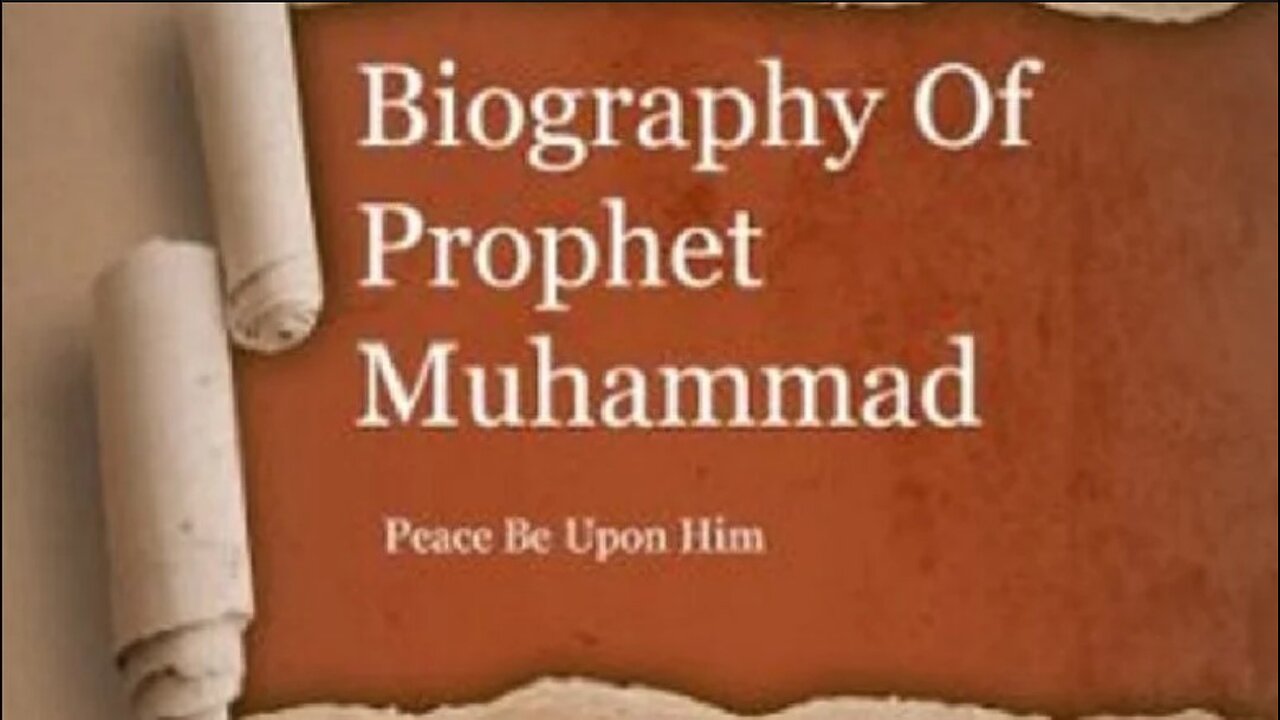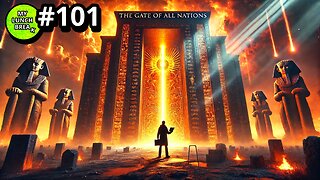Premium Only Content

About Muhammad (Peace Be Upon Him) Biography
Muhammad, peace be upon him, is considered the final prophet and messenger in Islam. His life is detailed in various historical sources, with the most comprehensive being found in the Islamic tradition's primary sources: the Quran and the Hadith (sayings, actions, and approvals of Prophet Muhammad).
Birth and Early Life:
Muhammad was born in Mecca, in present-day Saudi Arabia, around the year 570 CE. His full name is Muhammad ibn Abd Allah, meaning "Muhammad, son of Abdullah." His father, Abdullah, passed away before his birth, and his mother, Amina, died when he was six years old. After the death of his grandfather, Abdul Muttalib, Muhammad was placed under the care of his uncle, Abu Talib.
Prophethood:
At the age of 40, Muhammad received the first revelation from Allah (God) through the angel Gabriel in the Cave Hira on the outskirts of Mecca. The revelations continued over a period of 23 years and are compiled in the Islamic holy book, the Quran. Muhammad's mission was to deliver the message of monotheism and guide humanity to the path of righteousness.
Persecution and Migration:
As the message of Islam gained momentum, Muhammad and his followers faced increasing opposition and persecution from the leaders of Mecca. In 622 CE, he, along with many early Muslims, migrated to Yathrib (later known as Medina) in an event known as the Hijra. This migration marks the beginning of the Islamic calendar.
Establishment of the Islamic State:
In Medina, Muhammad played a crucial role in establishing a peaceful and just society. He formulated a constitution, known as the Constitution of Medina, which laid the foundation for the first Islamic state. During this time, he engaged in both defensive and diplomatic measures to ensure the safety and stability of the Muslim community.
Conquest of Mecca:
After several years in exile, Muhammad and his followers returned to Mecca in 630 CE, a momentous event known as the Conquest of Mecca. Instead of seeking revenge, Muhammad forgave many of his former enemies and worked towards the establishment of justice and reconciliation.
Death:
Muhammad continued to lead the Muslim community until his death in 632 CE in Medina. He passed away after a short illness at the age of 63. His death is known as the Farewell Pilgrimage, during which he delivered his final sermon, emphasizing unity, justice, and the sanctity of human life.
The life of Prophet Muhammad is not only a historical account but also a source of inspiration and guidance for Muslims worldwide. His teachings, actions, and character continue to be studied and emulated by millions of people. It's important to note that discussions about Muhammad's life often involve religious perspectives, and interpretations may vary among different communities.
-
 LIVE
LIVE
Tundra Tactical
3 hours agoTundra Nation Live : The Worlds Okayest Gun Live Stream
1,081 watching -
 17:06
17:06
Professor Nez
50 minutes ago🚨BREAKING: Elon Musk to BUY MSNBC!? Dems STUNNED by Brian Williams’ Viral Video!
2.32K2 -
![If You Smell LALALALA What CHiLi IS COOKING!!... #RUMBLETAKEOVER [Overwatch 2]](https://1a-1791.com/video/s8/1/e/s/X/3/esX3u.0kob-small-If-You-Smell-LALALALA-What-.jpg) LIVE
LIVE
CHiLi XDD
2 hours agoIf You Smell LALALALA What CHiLi IS COOKING!!... #RUMBLETAKEOVER [Overwatch 2]
521 watching -
 LIVE
LIVE
Delnorin Games
3 hours ago🔴 Live - Star Citizen
547 watching -
 1:39:44
1:39:44
HELMET FIRE
5 hours agoDEADROP IS BACK!
82.6K6 -
 10:03
10:03
Tundra Tactical
7 hours ago $1.04 earnedBrandon Herrera Vies Bid for ATF Director!
45.9K5 -
 22:01
22:01
DeVory Darkins
1 day ago $3.36 earnedHakeem Jeffries SHUTS DOWN The View as Matt Gaetz Speaks out
43.9K86 -
 2:02:54
2:02:54
Mally_Mouse
6 hours agoLet's Play!! - Spicy Saturday
30.1K -
 1:33:06
1:33:06
Slightly Offensive
6 hours ago $2.61 earnedAre You Ready for What's Coming Next? | Just Chatting Chill Stream
48.2K31 -
 32:10
32:10
MYLUNCHBREAK CHANNEL PAGE
1 day agoThe Gate of All Nations
125K47